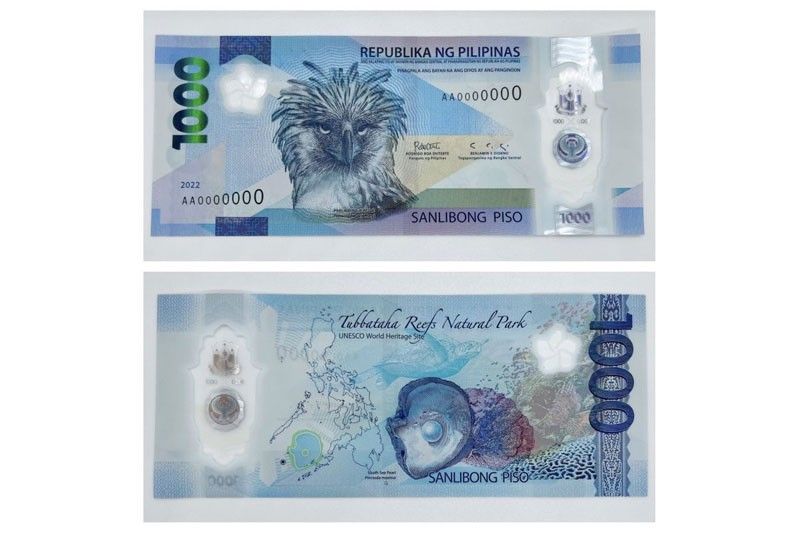BSP to issue 10 million pieces of P1,000 polymer banknotes

MANILA, Philippines — The Bangko Sentral ng Pilipinas (BSP) is initially issuing 10 million pieces of polymer P1,000 banknotes as part of a limited circulation test this year.
The central bank said a memorandum of agreement is being drafted for the guidelines covering the issuance.
It aims to cover matters such as polymer familiarization by client banks’ personnel and calibration of existing cash processing machines, vending machines, automated teller machines, bills acceptors and other similar devices for compatibility with polymer banknotes.
“The BSP is currently preparing for banknote’s limited circulation test (to circulate in parallel with current notes) to assess whether the benefits claimed by other central banks hold true under Philippine conditions,” the central bank said in its 2021 annual report.
It said the test would help determine the effects of polymerization on hygiene and public health, environmental sustainability as well as the lifespan, durability and counterfeiting rates.
The BSP also aims to collect stakeholder feedback and observe changes in currency handling behavior.
Earlier, the BSP said it partnered with the Reserve Bank of Australia for the printing of the plastic banknotes through Note Printing Australia. Last year, the BSP revived plans to use plastic or polymer to print more hygienic banknotes amid the COVID-19 pandemic, more environment-friendly as well as more durable and secure than the cotton and abaca fiber composite being used now. Studies showed polymer notes are more cost effective than paper notes, leading to lower note issue expenses. Based on the experience of other central banks, banknote issue expenses could be reduced by 40 to 60 percent.
Close to 60 countries have ventured into using polymer substrates for banknotes, among them Canada, Australia and New Zealand.
- Latest
- Trending





























